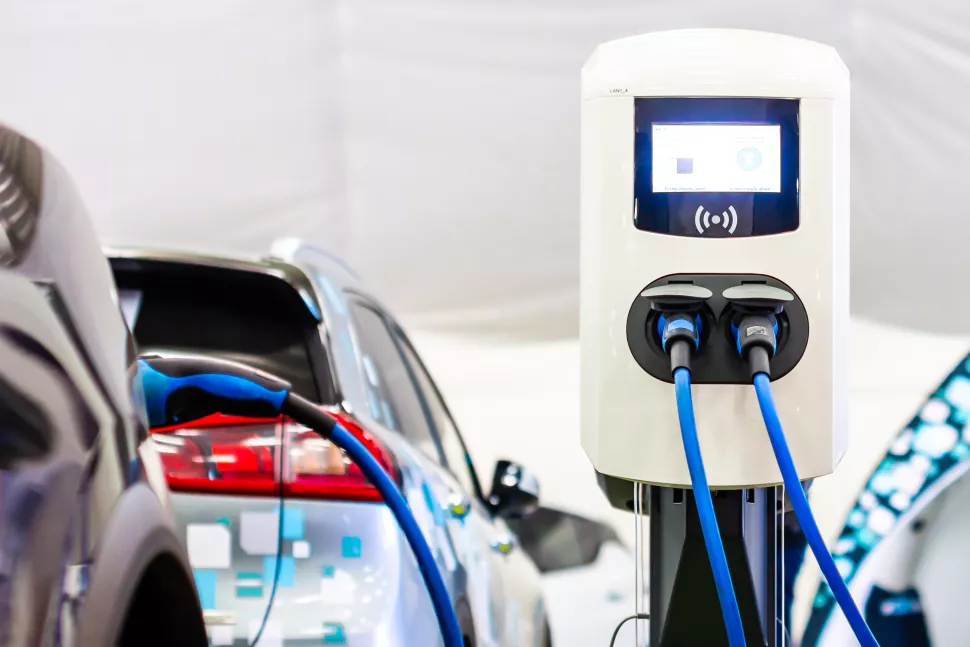Pros and cons of electric cars
Electric vehicles offer many benefits, but they also have some disadvantages when compared to conventional gasoline-powered cars. One of the biggest questions prospective electric car buyers face is whether to purchase an all-electric vehicle (AEV), plug-in hybrid electric vehicle (PHEV), or a gasoline-powered new car.
Compare and discover new electric vehicles
Learn about the environmental and financial benefits of driving electric!
How do electric cars work?
An electric car is any vehicle that is powered by a battery that has been charged by an external electricity source. There are many different categories of Electric and Hybrid vehicles including all-electric vehicles and plug-in hybrids that use both electric and internal combustion engine technology.
Pros and cons of electric cars
Electric cars are growing in popularity every day. Just like conventional cars, there are certain benefits and drawbacks of using an electric car compared to using a gasoline-powered car. Here are the top few to keep in mind:
Pros of electric cars Cons of electric cars
Electric cars are energy efficient Electric cars can't travel as far
Electric cars reduce emissions "Fueling" takes longer
Electric cars require lower maintenance Electric cars are sometimes more expensive
On the pros side, electric cars are energy efficient, are not good for the environment, and don't require as much maintenance as traditional gas-powered cars. On the cons side, you can't travel as far between refueling, the actual refueling process takes longer than filling a car at a gas station, and upfront costs are sometimes a barrier.
Below, we'll explore these pros and cons in further detail.
Advantages of electric cars
Electric cars are energy efficient
Energy efficiency refers to the amount of energy from the fuel source that is converted into actual energy for powering the wheels of a vehicle. AEVs like offerings from Tesla are far more efficient than conventional gas-powered vehicles: AEV batteries convert 59 to 62 percent of energy into vehicle movement while gas powered vehicles only convert between 17 and 21 percent. This means that
charging an AEV’s battery puts more towards actually powering the vehicle than filling a gas tank.
Electric cars reduce emissions
Emissions and carbon footprint reduction, including reduced usage of fuel, is another pro for all-electric vehicles. Because they rely on a rechargeable battery, driving an electric car does not create any tailpipe emissions, which are a major source of pollution in the United States. In addition, the rechargeable battery means much less money spent on fuel, meaning all energy can be sourced domestically (and often through renewable energy resources such as solar panel systems).
Improving battery technology in today's light-duty AEVs means they can drive 100 miles while consuming only 25 to 40 kilowatt-hours (kWh) of electricity. Assuming that your electric car can travel three miles per kWh, the electric vehicle can travel about 43 miles for $1.00. By comparison, if we assume that gas costs $2.50 per gallon, an average gasoline vehicle with a fuel efficiency of 22 miles per gallon will only be able to travel 10 miles for the same price. The distance traveled for a fuel cost of $1.00 is nearly four times as far with an electric vehicle.
Electric cars perform well and don’t need much maintenance
All-electric vehicles are also high performance vehicles whose motors are not only quiet and smooth but require less maintenance than internal combustion engines such as an oil change. The driving experience can also be fun because AEV motors react quickly, making them responsive with good torque. AEVs are overall newer than their gas powered counterparts and are often more digitally connected with charging stations, providing options such as controlling charging from an app.
Disadvantages of electric cars
Electric cars can travel less distance
AEVs on average have a shorter range than gas-powered cars. Most models range between 60 and 120 miles per charge and some luxury models reach ranges of 300 miles per charge. For comparison, gas powered vehicles will average around 300 miles on a full tank of gas, and more fuel efficient vehicles getting much higher driving ranges. This may be an issue when looking at AEVs if you frequently take long trips. Availability of charging stations can make AEVs less suitable for activities like road trips.
Electric cars can take a long time to recharge
Fueling an all-electric car can also be an issue. Fully recharging the battery pack with a Level 1 or Level 2 charger can take up to eighty hours, and even fast charging stations take 30 minutes to charge to 80 percent capacity. Electric car drivers have to plan more carefully because running out of power can’t be solved by a quick stop at the gas pump.
Electric cars can be expensive
Electric vehicles (EVs) usually have a higher price tag.

